The Combat Patrolman "Esequibo" Class. Venezuelan Technology and Innovation
The "Esequibo" Project represents an innovative effort to revitalize the Venezuelan naval industry and strengthen the country's maritime operational capacity. Designed as a multipurpose ship, this patrol boat combines high hydrodynamic performance, advanced technology and profitability, with the aim of meeting security and defense needs in Venezuelan jurisdictional waters. Next, we explore the main technical and strategic aspects of this ambitious project.
Isidro José Naranjo Arrieche
1/7/20253 min read
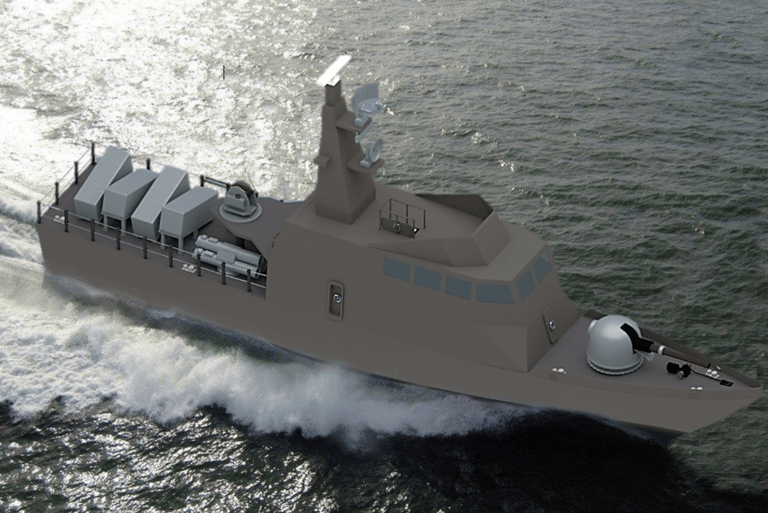

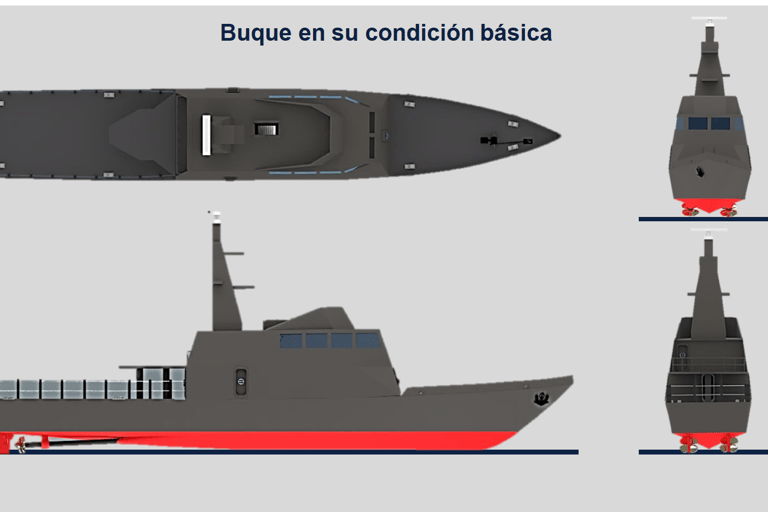

The Solution to a National Challenge
In a context where large ships represent high costs of construction, maintenance and operation, the "Esequibo" Project emerges as a more efficient alternative. This 45-meter-long and 8.7-meter-long patrol boat combines hydrodynamic design and versatility to perform multiple functions, from patrol operations and protection of sovereignty, to search, rescue and combat in critical situations.
Technical Specifications
The ship is designed to offer optimal performance and comply with international regulations, which reinforces its quality and safety. Its main features include:
Materials: Naval steel helmet and aluminum superstructure, guaranteeing durability and lightness.
Capabilities: Maximum speed of 24 knots and a range of up to 3,000 nautical miles at cruising speed.
Propulsion System: Two main engines of up to 2,400 bkW each and fixed pitch propellers.
Built-in Technology: Integrated navigation system, X-band and S-band radars, advanced communication systems and optional equipment such as patrol drones.
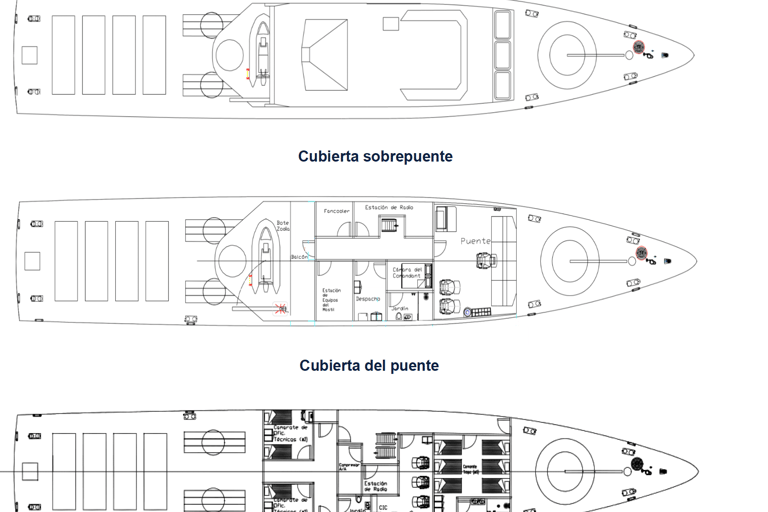

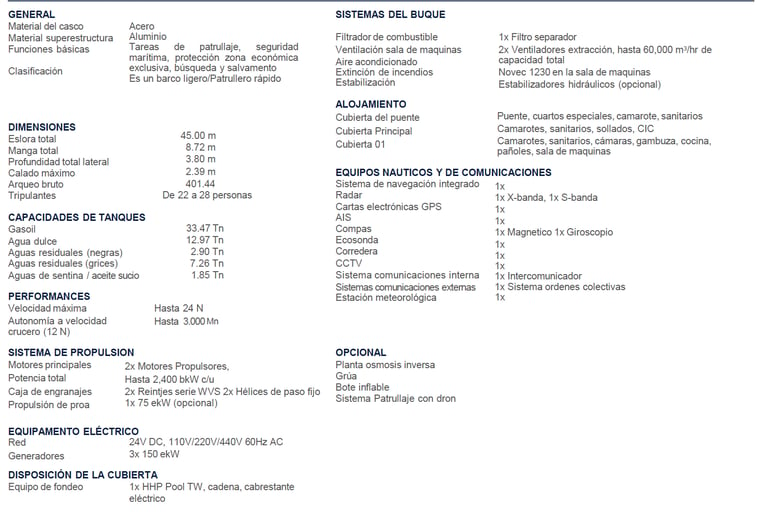

Project Objectives and Benefits
The "Esequibo" Project not only seeks to provide the Bolivarian Navy with an efficient ship, but also to stimulate the development of Venezuelan naval technology. Among its objectives are:
Promote national industry: Taking advantage of local personnel and technological resources.
Comply with international standards: Guaranteeing the quality and safety of the patrol car.
Offer a low operating cost: Compared to international alternatives, the project represents a competitive investment for the State.
Armament and Versatility
The ship can be equipped with a significant arsenal that includes:
76/62 mm Cannon.
Four MK2 type missiles.
ILAS3 torpedo launch systems.
12.7 mm machine guns, manually or remotely operated.
This makes it a versatile platform for coastal defense and river operations, adapting to the strategic needs of the country.
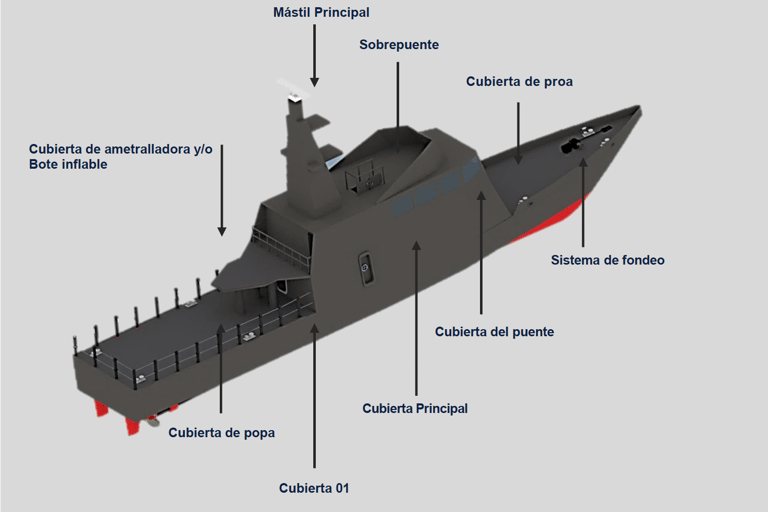

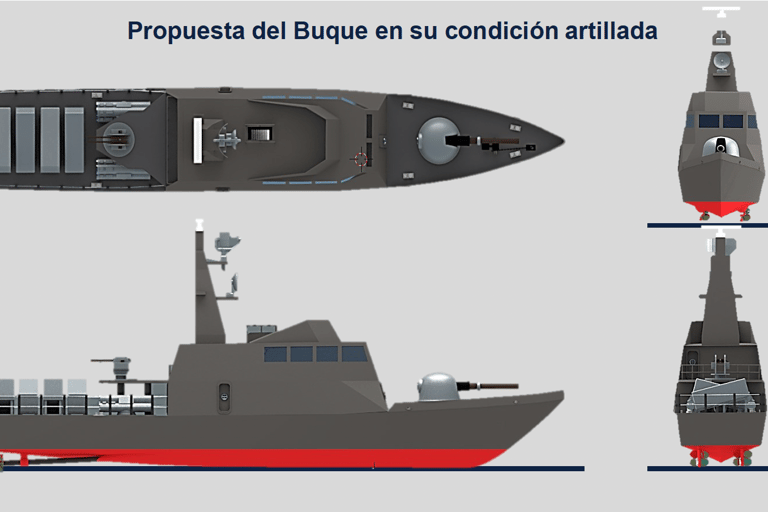

The "Esequibo" Project represents a unique opportunity to strengthen the operational capacity of the Venezuelan Navy, while promoting the development of the national naval industry. Investing in this multipurpose patrol boat is betting on a more secure and technologically advanced future, where maritime sovereignty is reinforced through cost-effective and high-quality solutions. By using local resources, Venezuelan technology and qualified labor, this project aligns with the country's strategic objectives to achieve greater independence in the field of maritime defense.
In addition, the design of the "Esequibo" combines operational versatility and cutting-edge technology, making it ideal for multiple scenarios: from the protection of exclusive economic zones to search, rescue and combat operations. Its ability to comply with international regulations not only ensures a high standard of quality, but also positions Venezuela as a regional reference in the construction of military vessels. This operational flexibility, added to its profitability, makes the project a viable alternative to the expensive international solutions that dominate the market.
Finally, the investment in the "Esequibo" Project is not limited to the construction of a ship; it is a commitment to the industrial and technological progress of the country. This project encourages job creation, knowledge transfer and the strengthening of local capacities, leaving a lasting legacy in the Venezuelan naval industry. Betting on the "Esequibo" means investing in the future of maritime defense, the national economy and the technological self-sufficiency of the country.


